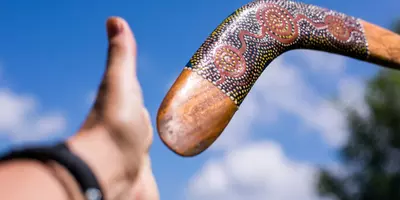
Nov 7, 2019 ● Eric Titner
Ask the interview questions that will find your ideal candidate
Today’s work world is undergoing a rapid paradigm shift, thanks to massive waves of technological, economic, and cultural change, and the old ways of doing business are being upended—making hiring for all sorts of positions across industries a greater challenge. Today’s job market is also more competitive than ever before, with a crowded field of companies—ranging from lean and hungry start-ups to global multinational conglomerates—all drinking from the same candidate pool.
When your business is in hiring mode, your objective is clear: you want to source and retain the most qualified candidates for your open positions in order to stock your teams with the best talent available and be a leader in your industry. You also want to prevent hiring mistakes that can cost your business in terms of wasted time and money spent onboarding candidates who ultimately turn out to be a poor fit. The professional world is littered with horror stories revolving around bad hiring decisions, and it’s in your company’s best interest to not fall into this trap—especially since it’s an avoidable one if you approach the hiring and interview process the right way.
So, what does all of this mean? Simply put, if you want your business to be competitive in the job market and attract and retain candidates who are the right fit for your team, you need to make sure that your hiring procedures are razor sharp.
Regardless of your industry, the interview phase is without a doubt the best time to determine which candidates are ideal for your hiring needs—provided that you’re asking the right questions when candidates are in front of you. As someone in charge of hiring new staff, you’ve certainly been on both sides of the hiring equation, and you know the difference between an effective interview and one that fails to do the job of weeding out the wrong candidates and making sure the right ones shine through.
So … are you asking the right questions on interviews? Hopefully you are, or else you run the risk of weeding out good candidates and failing to catch bad ones early on. It’s simply too important to leave up to chance. Consider using the following strategies to help you make sure your interview questions are right on target.
Get past the resume
On too many interviews, an alarming amount of time is wasted on asking questions that simply confirm what’s written on a candidate’s resume. Unless your intent as an interviewer is to catch candidates who lie on their resumes, these sorts of confirmation questions are little more than conversation filler and fail to get at any meaningful information beyond what both sides of the table already know. Instead, an effective interview moves quickly past the resume and works at questions that serve to create a more comprehensive picture of the candidate's personality, skills, and potential value proposition.
Aim to see if they're a good fit within your organization
One of the most effective indicators of on-the-job success is a candidate’s fit with a company’s existing culture. A recent article on Inc., The 1 Thing All Great Bosses Think About During Job Interviews, supports this notion: “...culture fit is the most important aspect of retaining great employees above anything else…Hiring employees that don't mesh well with the existing or desired company culture leads to poor work quality, decreased job satisfaction and a potentially toxic environment. This results in turnover which has high costs—both hard and soft. On the other hand, hiring employees that fit well with the culture and share a strong belief in the values will most likely flourish.”
Questions that are designed to assess a candidate’s potential fit with your company culture is time well spent on interviews. Just because a person is ideal on paper doesn't mean that they're ideal for your specific company, so don't let fancy schools and former companies be your main guiding light.
Use the element of surprise
Most candidates who’ll sit in the chair in front of you have been on countless interviews in their lives, and have had the chance to hone and refine their answers to the most common questions asked. So, don’t get too impressed by those sorts of well-articulated responses. Instead, save your admiration for how candidates respond to the sorts of curveball questions that’ll really surprise them and challenge them to think quickly and effectively on their feet—which is a good indicator of the level of creative, out-of-the-box disruptive thinking and innovation they’ll bring to your team if hired.
If you’re responsible for vetting new candidates for your business, make sure the time you’re spending on interviews is time well spent. Look beyond the resume to see if the person in front of you has the skills, personality, and working style to fit well within your specific company.


